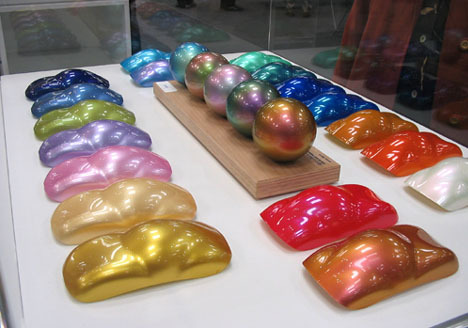
Merck to exit pigments
Submitted by:
Andrew Warmington
Merck KGaA is to sell its global Surface Solutions business unit to Global New Material International Holdings (GNMI), one of the world’s largest pearlescent pigment producers, for €665 million in cash, subject to regulatory approvals and other customary closing conditions. This includes works council agreement for the French part of the business, which is not yet part of the deal but is subject to a binding agreement.
The deal should close in 2025. The proceeds will be used to further strengthen its strategic core businesses. According to CEO and chair Belén Garijo, it “will further sharpen our focus on high-tech applications in Electronics, such as driving the development of next-generation chips”.
Surface Solutions, formerly known as Effect Pigments, offers pigments for coating, industrial and cosmetic applications. It had sales of €411 million in 2023 and employed about 1,200, more than half in Germany. All will transfer.
This adds sites in Germany, Japan and the US, to add to GNMI’s in China and Korea. Merck will continue to own the site in Germany, at Gernsheim, with GNMI taking a long-term lease for the part used by Surface Solutions. The GreenTech Park Fluxum in Gernsheim is not affected by the sale.
There has long been speculation about Merck exiting from pigments, which is dwarfed by the much larger, more profitable activities in both life sciences and electronics. As long ago as 2019, company insiders told news agency Bloomberg that discussions were being had and that private equity players were interested in combining it with Clariant’s activities in the same field. A price of up to €1.5 billion was mentioned.
Shortly before agreeing the sale, Merck joined the Semiconductor-X research project on the digitalisation of supply chains in the semiconductor industry. Its role, as a supplier of chemicals and materials in this field, will be “to contribute to the development of digital structures and solutions for value chains”.
Funded by the German Federal Ministry for Economic Affairs & Climate Action (BMWK) and led by Intel Germany and the Fraunhofer IFF, Semiconductor-X currently has 20 members. It will run until September 2026.
The work will involve developing digital twins of supply and value chains and enabling a decentralised, sovereign and secure data exchange, aided by data models and open-source software. Project members are working on more sustainable systems for semiconductor manufacturing, to reduce CO2 footprints, and energy and water consumption along the value chain.
Shortly beforehand, Merck had agreed to acquire Unity-SC, a supplier of metrology and inspection instrumentation for the semiconductor industry, for €155 million plus further milestone-based payments, subject to agreement with the works council. Unity-SC is based near Grenoble in France and employs about 160 people.
Merck said that Unity-SC’s precise metrology measurement devices make it possible to further optimise the quality, yield, and manufacturing costs of chips used in applications related to artificial intelligence (AI), high-performance computing and high-bandwidth memory. The deal will thus further strengthen its ability to benefit from the growth opportunities AI offers.
